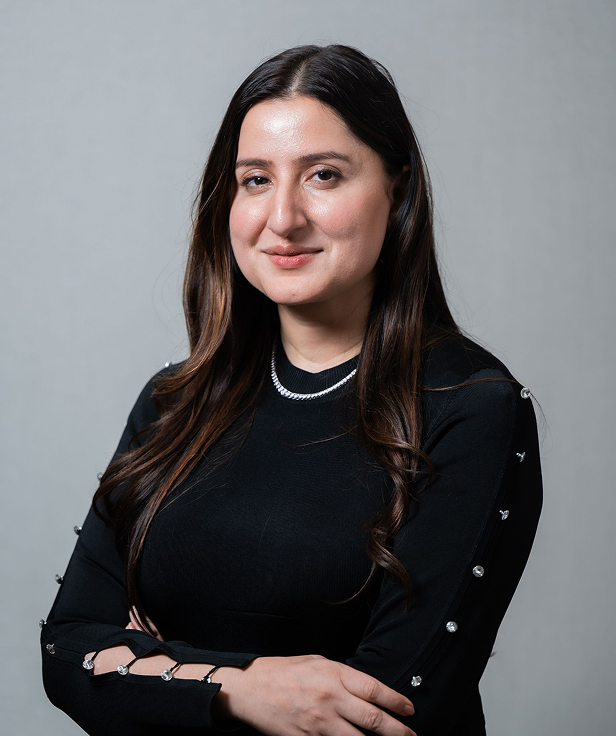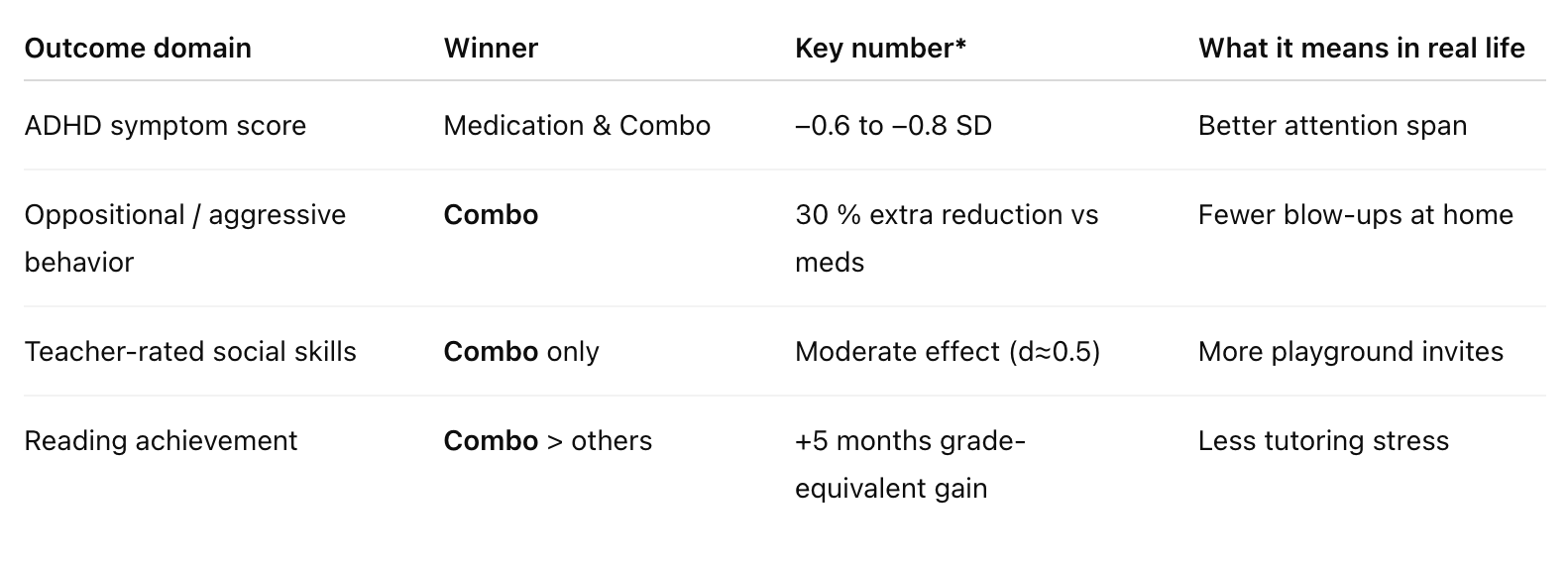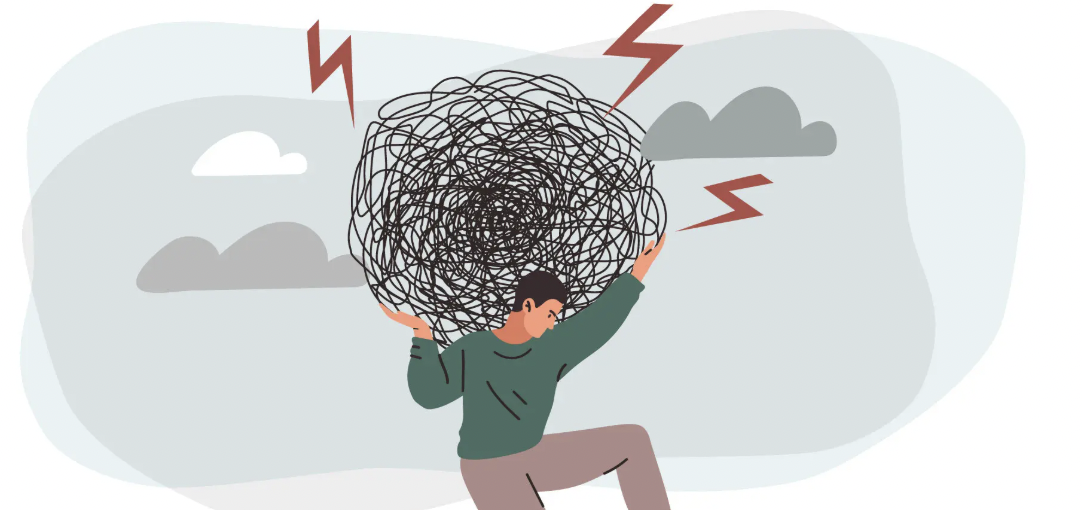ADHD Treatment is Best best when Both Medication and Behavior Therapy are used
The Multimodal Treatment Study of Children with ADHD (MTA) was a 14-month, federally funded, randomized clinical published in the Archives of General Psychiatry in December 1999.

Dr. Saba Afzal
Psychiatrist & Medical Director

Takeaway: Both Medication and Behavioral Therapy are needed for ADHD treatment
- Carefully managed stimulant medication cuts core ADHD symptoms roughly in half, but the combo of medication + behavior therapy “near-normalized” 68 % of kids at 14 months, versus 56 % on meds alone and 34 % with therapy alone
- Only the combined group showed extra gains in reading scores, parent-child harmony, anxiety, and aggressive behavior, benefits medication-only didn’t reach .
- In plain English: pills steady the steering wheel, but skills training teaches the driver to handle traffic.
Why should you care?
If your child is on medicine but still coming home with daily meltdowns, you’re not imagining things—one large review found effect sizes of 0.82 for the combo versus 0.63 for meds alone (0.8 is considered “large”). That extra punch translates to calmer evenings, fewer detentions, and happier siblings.
The Multimodal Treatment Study of Children with ADHD (MTA)

The Multimodal Treatment Study of Children with ADHD (MTA) was a 14-month, federally funded, randomized clinical trial that followed 579 children (ages 7-9) across six U.S. academic centers. The question it asked is the same one parents still ask today: Is medicine enough, or do kids need more?
The MTA is often called “the STAR*D of ADHD.” It was randomized, multi-site, rigorously blinded where possible, and publicly funded by NIMH— minimizing commercial bias. Peer reviewers for one of psychiatry’s top journals deemed the methods sound and the statistics rock-solid
Note: Interested in the STAR*D - Check out our other blog: Best way to Cure Depression
The Clinical Data

*All figures drawn from 14-month outcomes
Effect size defined: a statistical yard-stick; 0.2 = small, 0.5 = medium, 0.8 = large.
Study Design – How they figured it out
- Population: 579 kids, ADHD-Combined type, diverse ethnic mix
- Sites: Six university clinics + local schools
- Randomization:
- Med-only: best-practice titration, monthly checks
- Behavior therapy: parent workshops, teacher consults, child social-skills training
- Combo: both arms above
- Community care: whatever docs usually did
- Duration: Active treatment 14 months; blinded raters collected parent & teacher reports every three months.
Why this study changed my practice
“Before MTA, I wrote a prescription and hoped for the best. Now I tell families: ‘The pill calms the storm; therapy teaches the sailor.’ I schedule a behavioral-parent-training referral the same day I start methylphenidate. When parents stick with both pieces, I see grades climb and tempers cool—outcomes I rarely got with medication alone.”
What patients (and parents) should know
- Medication ≠ magic wand. It boosts focus but doesn’t teach organization.
- Behavior therapy = toolbox. Parent strategies + classroom tweaks cut tantrums and lost homework.
- Together is best: 2-in-1 care gives about a 1-in-3 better shot at near-normal behavior .
- Side-effect bonus: Kids in the combo group needed lower stimulant doses on average, which can mean better appetite and sleep
- Long game matters: Follow-ups show skills, not just pills, predict later success in friendships and academics
Final thought
ADHD isn’t a character flaw; it’s a neuro-developmental glitch that responds best to a team approach. The MTA Study proved 25 years ago—and every replication since has echoed—that carefully monitored medication opens the door, but structured behavioral support walks your child through it. If your current plan feels half-finished, consider adding the missing half. Your child deserves more than symptom control; they deserve the confidence that comes from mastering their own brain.
More Articles

ADHD Treatment is Best best when Both Medication and Behavior Therapy are used
The Multimodal Treatment Study of Children with ADHD (MTA) was a 14-month, federally funded, randomized clinical published in the Archives of General Psychiatry in December 1999.





